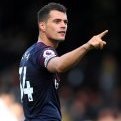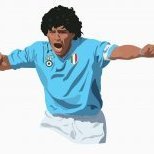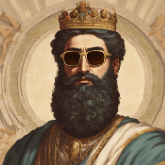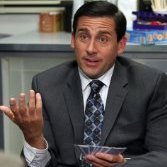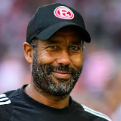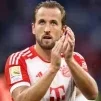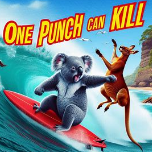Leaderboard
Popular Content
Showing content with the highest reputation on 29/08/17 in all areas
-
3 points
-
THE MEYBA YEARS 1981-1990 Més que un club. It’s a motto of which FC Barcelona’s fans, directors and marketing department persistently remind us, but not without justification: in European football the club has always been something of an anomaly. As is perhaps to be expected for a club that exists as the world’s most positive and visible source of Catalan pride, Barça have always tended to have their own way of doing things. For a long time these differences extended to the team’s kit. Famously, Barcelona were the last major club in the modern era not to sully their shirt with a commercial sponsor. It seems hard to believe given today’s all too frequent Nike efforts, but not too long ago the blaugrana strip barely changed over the course of a decade. Produced by the Spanish company Meyba, this classic kit was (along with an innate dislike for Real Madrid) one of the few constants at the Camp Nou in the 1980s. The shirt is often listed as dating from 1984-89, but I see no difference in the kits worn either side of that period, which leaves me convinced that it remained unchanged for nine seasons between 1981 and 1990. For the team it was a turbulent period characterised by strained relationships and only sporadic on-field success, not to mention a slew of big-money signings and big-name managerial casualties. The first of these was the aging Argentine Helenio Herrera, who despite picking up a Copa del Rey with Barça in 1981, could only lead the team to a disappointing fifth-place league finish. Herrera’s replacement was Udo Lattek. The West German maintained a prickly relationship with compatriot Bernd Schuster, but reignited a bond with the Danish forward Allan Simonsen — an old acquaintance from Lattek’s days at Borussia Mönchengladbach. Barcelona reached the final of the 1982 European Cup Winners’ Cup, which just so happened to be hosted that year at the Camp Nou. Though they went behind against Standard Liege, Barça’s home advantage eventually proved the difference, and goals from Simonsen and veteran striker Quini clinched the victory. Though the Catalans finished a close second to Real Sociedad in the league — with Quini securing the Pichichi top scorer trophy for the third season in a row — the Liga title continued to elude them. The plan to change that came in the shape of Diego Maradona, who arrived at Barcelona in the summer of 1982. The fee paid to Boca Juniors was a then-record £5 million, but the greatest player in the world seemed worth every penny, at least according to Barcelona’s elected president, Josep Lluís Núñez. Unfortunately the Argentine’s first season in Spain was plagued by a bout of hepatitis, causing him to spend three months on the sidelines. Maradona recovered in time to help Barcelona beat Real Madrid in the final of both cup competitions (the Copa del Rey and the Copa de la Liga), but they could only manage fourth in the league. Lattek departed that summer, and in stepped chain-smoking Argentine César Luis Menotti. Known as “El Flaco”, Menotti had coached Argentina at the last two World Cups; it was hoped that this factor that would help him bring out the best in Maradona. That plan was thrown into jeopardy just four games into the new season, when a reckless tackle by Athletic Bilbao’s Andoni Goikoetxea left the Argentine with a broken ankle. Maradona returned in time to play his part in a shockingly violent Copa del Rey final also against Bilbao, but it was a relatively meagre third place finish in the league that sealed Menotti’s fate. Impressive results with Queens Park Rangers, and an endorsement from England coach Bobby Robson, helped Terry Venables’ fill the vacant seat on the bench at Barça. With Maradona having left that summer for Napoli, “El Tel” built his team around a strong back four, the commanding Schuster in midfield and a fellow Brit up front: Scottish striker Steve Archibald. It proved a winning combination, as Barça galloped to a tenth title — their first since 1974 — with a ten-point lead over Atlético Madrid. Venables’ was no one-season wonder: his team boasted a nucleus of Spanish internationals, including Victor, Migueli, Julio Alberto, Caldere, Marcos and Carrasco. The side proved strong enough to reach the European Cup Final for only the second time in 1986. Their opponents in Seville were the talented Romanians of Steaua Bucharest. A typically close final ended goalless after extra-time and Barcelona’s lacklustre display was confounded by a remarkable penalty shoot-out, in which they saw all four of their penalties saved by Steaua keeper Helmuth Duckadam. Keen to recover from that blow, Venables signed two stars of that summer’s World Cup: Spain goalkeeper Andoni Zubizarreta (who would replace the veteran Urruti) and England centre-forward Gary Lineker. Fresh from having won the Golden Boot in Mexico, Lineker was expected to form a deadly partnership alongside Mark Hughes, who had arrived from Manchester United. Unfortunately the Welshman failed to settle in Catalonia, earning himself the pejorative nickname “El Toro” before being swiftly loaned out to Bayern Munich after a single season. Lineker on the other hand quickly made himself at home, and immediately endeared himself to the Barcelona faithful by scoring on his league debut after just two minutes. Later that season “El Matador” bagged a memorable hat-trick against Real Madrid, further cementing his place in Catalan hearts. But despite Lineker’s prolific goalscoring Barça were pipped to the title by Real Madrid for the second year running, this time by just a single point. However it was the ignominy of home and away defeats to Dundee in the UEFA Cup quarter-final later that season that most likely cost Venables his job just a few weeks into the 1987-88 campaign. The Englishman’s caretaker replacement, Luis Aragonés, remained in charge for the rest of the what proved a tumultuous season on and off the pitch. A government clampdown on tax evasion had seen players asked to have their wages cut in order for the club to repay what they owed the authorities. The row reached its climax in April 1988 when the bulk of the squad convened at the Hotel Heredia calling on Nuñez to resign. In the end the president stayed, with most of his players departing instead. It was clearly time for a fresh start, and the man handed the task of leading Barça into a much-needed new era was Johan Cruyff. With a steadfast conviction in his footballing philosophy, the Dutchman introduced a style of play that had its roots in the Total Football of Ajax. The new manager seemed less than taken with the team he inherited, moulding his new side around several new players: Bakero, Goikoetxea, Amor, Beguiristain and Salinas. Victor, Schuster and Archibald all left the club, while Cruyff preferred the tall Salinas as a target man up front, forcing Lineker out wide on the right wing. From his new position the Englishman inevitably found the net less frequently, but did provide the cross for Barcelona’s first goal in the 1989 European Cup Winners’ Cup Final, in which they beat Sampdoria 2-0. Lineker rejoined Venables at Tottenham Hotspur later that summer. Carrasco and Quini also left Camp Nou, with Dutch defender Ronald Koeman and the elegant Dane Michael Laudrup arriving. 1989-90 turned out to be the final season for Barcelona’s now familiar kit, in which they had experienced such extreme highs and lows. In 1990 the shirt was modified for the first time since 1981 with the inclusion of a subtle stripe detail woven through the fabric of the shirt. By now Cruyff had begun to assemble what became known as the “Dream Team”, signing the Bulgarian Hristo Stoichkov and plucking homegrown prospects Guardiola and Ferrer from the “B” team. Barcelona finally won the league at Cruyff’s third attempt in 1991, initiating a period of domination that would last for four seasons. Despite losing that year’s Cup Winners’ Cup Final to Manchester United (in which Barça reject Hughes scored twice) the Catalans maintained their momentum in Europe the following season, reaching the European Cup Final at Wembley, where once again they faced Italian champions Sampdoria. A typically close but absorbing contest was settled in extra-time by a bullet-like free-kick from the boot of Koeman. In recognition of the occasion, at the final whistle the team quickly threw on home shirts for the trophy presentation (they’d worn an orange away kit during the match), in which the club’s official captain Alexanko (now playing the role of substitute) was given the honour of hoisting aloft European football’s ultimate prize. Barcelona’s Wembley victory proved a fitting conclusion to its long association with Meyba. In 1992 the club struck a deal with the Turin-based company Kappa, whose Madrid-white branding along the sleeves of the new shirt caused immediate consternation among fans. Cruyff’s “Dream Team” won four Liga titles in a row, their one misstep a 4-0 capitulation at the hands of Milan in the European Cup Final in 1994. Following Cruyff’s departure, Bobby Robson led a Ronaldo-inspired Barça to a record fourth Cup Winners’ Cup success, before Louis Van Gaal and Frank Rijkaard achieved further success in the Dutch tradition. But it was under Cruyff disciple Guardiola that the Dutchman’s footballing vision reached its extreme peak, and inevitable conclusion. Between 2009 and 2012 Barcelona became an almost unstoppable force at home and in Europe, developing a style of possession football that became known by the onomatopaeic term tiki-taka. Of course, this period of consistency was contrasted by annual — and at times radical — changes to the club’s once-iconic strip. A complete reversal from the 1980s, when Barça changed everything but their kit. Credits to: James Campbell Taylor3 points
-
2 points
-
Since Herrera has joined United, League titles Hazard - 2 Herrera - 0 Yup. He sure got owned2 points
-
Not so much aimed at you tbh. I've got a few friends who fucking hate FSG for anything that ever goes wrong with the club and they don't really give a shit when shit goes well. I think 7 years on from where we were, we've made decent progress. We've had some setbacks with bad signings, management mistakes (at the first team level and in the executive decision making level for us). All things considered, they've taken us from the Hodgson days, made a few pretty massive errors with transfers during King Kenny's 2nd stint - as well as keeping him for more than the season where he steadied the ship post Hodge-podge, kept faith with Brendan a bit too long once it was clear he was out of ideas post-Suarez. And the whole thing with VvD this summer and continually missing out on targets last summer with our low-balling bids are frustrating for sure. But all things considered, we could be having much more major ownership issues. Arsenal, for instance, look to have a real divide between board members who want to see the club ambitious and those who are okay with just getting steady money. Monaco are minted and their new model for their club is to routinely sell off their very best players at huge profits - which is obviously not ideal if you want to win things. We don't have the best financial backing in our league. But those teams in our league that do are: 1.) Man Citeh - oil baron plaything, 2.) Chelsea - oil baron plaything, 3.) Man Utd - the literal embodiment of everything terrible and evil about humanity. I think while FSG are not the richest of owners, they've still given us decent financial backing (compare our net spend to clubs with more similar financial footing than us for the past few years, as opposed to Citeh/Chelsea/the other manc club - it's not like they've been incredibly stingy). But they haven't always had the best decision making - which is understandable considering they've had success with baseball and tried to port that knowledge over even though it is a fundamentally different sport. Shit like the failed Carroll/Downing experiment with a statistically good crosser of the ball and a statistically good header of the ball make sense when you consider what worked for the Boston Red Sox - but when you look at how those signings fundamentally changed how our squad was set up to play, and when you realise stats aren't as important in football (although the data is still useful in some senses) as they are in baseball... it shows they had learning to do. I've had doubts with FSG's ambition in the past as well. But between standing up for not selling Suarez to Arsenal (and then a season later, selling for much more money - more than double if I remember right), bringing in Klopp (rather than persisting with Rodgers), insisting we hang onto Coutinho (who if we do sell this window, we will be getting an insane price for - even though it's not really in our best interests too if we can't land Lemar), and the serious amounts of money we've been looking to drop on individual players this season (the amounts for VVD, Keita, and Lemar are all insane - Salah and Mane look like absolute bargains with the state of this market right now)... I find it hard to argue that FSG haven't demonstrated a significant commitment to improving Liverpool. The moneymen are there to sign the checks. If things aren't working out then, it's on our recruitment team and coaching staff moreso than a board that's giving financial backing. And to be honest, other than the VVD fuckup this summer and Karius... I don't think we got a lot wrong in recruitment last season. This season, I think it was unwise to really be focused on certain players for key areas that need strengthening - it's always a decent idea to have backups... you have to admit, our persistence in trying to land our number one targets shows ambition. Especially for a club that for decades has had problems landing our top targets. But a real major point of my initial post was basically: wow, remember how shit Hodgson & G&H were? Because holy shit it was bad.1 point
-
1 point
-
One for the FSG Out Crowd: Never forget the dire fucking straights we were in 7 years to the day.1 point
-
An army of the dead lead by an ice king flying a dead dragon attacks a giant ice wall and you're concern is that the flame was blue?......okay.1 point
-
Apparently Arsenal are putting in bids for; Dybala Iñigo Martínez Insigne Arda Turan Antoine Griezmann oh... and Jonny Evans.1 point
-
I guess I have to actually read the books now, so I can wait for the new ones where Littlefinger and Varys pull the strings instead of standing in corners for a whole season.1 point
-
Call it nostalgia or even melancholy.... It's my favourite period and one that many real Barça fans will never see again... Like the piece says, those were rather turbulent times during that period much to do with (unsaid) with Spain coming to terms with democracy after the long shackled period lived under Franco. But for me that period where Spanish football and especially FC Barcelona were concerned, a mysterious and fantastical period. Success on the field was sparse, but it was genuine and based on the ideals the football club had set with it's foundation in 1899. The club continues to live in it's democratic fan based rule, but ever since, the essence was lost and only for a brief period when Joan Laporta took over as president did it seem like the ideals were once again put at the forefront of everything that surrounded it. Unfortunately, Joan Laporta got too involved in politics and used his ideological beliefs through the club as a vehicle that became to politicised. Since then it's been a downward spiral of individuals using the club name for their own purposes and within it rot has set. But anyway... As I started, my greatest moments and memories of the club lie in that period which wasn't exactly glittered with the success Barça have enjoyed since.1 point
-
I don't write on any other forums mate. But there was one I used to belong to some years back, but it's in Spanish... Do you know how to write in Spanish mate? (or Catalan for that matter). I also agree with Ricardo, one club forums are very boring.1 point
-
Personally i do belong to a Bayern forum but i find alot of what El Loco says to be true. I mostly use it as a source of information and try and rarely post as its not the most interesting discussions and debates, when there is its usually started from outsiders. Just my view on our english forum maybe Barca's different but i enjoy the input from other league and club fans more here to be honest. Sorry no idea on Barca forums though1 point
-
I've read a couple before and I can't say that were exactly the chummiest people. Something very... odd about them. Speaking English yet deriding all the Barca 'gloryhunters'.1 point
-
https://www.barcaforum.com I´m not registered but I read some stuff they post there. Don´t abandon us though, I find debating with fans of other clubs much more interesting.1 point
-
Watching a team implode so gloriously has never made me this sexually aroused before1 point
-
I was off sick with strep throat so i did some catching up! finished the first season of The Son. I found it got better and better and im quite happy to see it was renewed for a second season. The ruthlessness was something else but god. Worth checking out if theres any other western fans out there! @nudge1 point
-
Oxlade-Chamberlain is a good signing - and while that price seems a bit high for him - in this market it's actually fairly reasonable. Chelsea need more depth and homegrown players, the Ox is English and versatile as fuck. Useful on multiple levels.1 point
